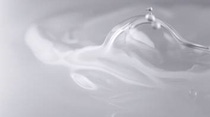Sustainability
BASF markets anode binders for lithium-ion batteries made in Europe
November 4, 2020
Electric mobility is one of the most promising solutions to today’s climate and energy challenges. Especially in the European Union this issue has made it to the top of the public agenda. The key to successful electric vehicles and their mass adoption lies within lithium-ion battery technology.
From a technical point of view, there is still need for improvement, for example when it comes to capacity and charging times. But also, global availability and local supply of raw materials are further important issues that concern battery manufacturers and OEMs.
BASF has developed its new Licity® product range in order to meet these needs. Depending on their requirements, customers can choose between series with different application focus, e.g. binders suitable for pure graphite or siliconcontaining anodes. Irrespective of focus, all Licity binders enable higher capacity, increased number of charge / discharge cycles and reduced charging times. Additionally, Licity binders enhance performance in low temperature environments, provide superior adhesion to collector foil and high compatibility with a broad range of active materials. Moreover, they can be customized to meet customers’ needs.

Besides, customers can benefit from sustainability features: Licity binders are waterborne, carboxylated styrene butadiene copolymers with very low VOC content. Furthermore, CO2 can be saved when Licity products are manufactured according to the biomass balance approach. In this binder version, biomass is fed into BASF’s production process and allocated to the binder. From the raw materials to the delivery of the Licity anode binders, BASF is committed to aligning economic goals with environmental and social responsibility.
“Strong and capable batteries pave the way for a broader dissemination of electric vehicles. Backed by our extensive expertise in binders gained through decades of research and development for numerous applications in the automotive and transportation sectors, we are pleased to be able to offer our customers a new binder technology that pushes the capabilities of lithium ion batteries,” explains Christoph Hansen, Senior Vice President Dispersions & Resins EMEA at BASF.
